Ultrasonic Flow Tester PCE-TDS 100H-TG50 incl. Ultrasonic Thickness Tester
PCE-TDS 100H-TG50
Availability : กรุณาติดต่อสอบถาม
according to the time difference method / for determining flow velocity and flow rate / Measuring method for liquids that are as homogeneous as possible
The ultrasonic flow tester is required as part of a control measurement or for quickly determining the flow in a pipeline and is therefore a portable / easy-to-install measuring system. The ultrasonic flow meter works according to the transit time difference method. The measuring principle of the ultrasonic flow meter is quite simple.
Measuring a pipe obliquely with the flow takes less time than measuring against the flow. The stronger the current, the longer it takes to fight it and the faster you go with it. The difference between the flow times with the flow or against it therefore depends directly on the flow velocity of the river. The ultrasonic flow meter uses this effect to determine flow velocity and flow rate.
Electro-acoustic transducers (“piëzo effect”) send and receive short ultrasonic pulses through the medium flowing in the pipe. The transducers are offset in the longitudinal direction on both sides of the measuring tube. The non-destructive sensors are placed on the pipe and e.g. attached with a cable tie. The display shows the flow velocity within a short time. The ultrasonic flow meter can be used to measure on metallic pipes, plastic pipes or rubber pipes.
Measurable liquids
Acetate, acetone, alcohol, ammonia, aniline, benzene, butyrate, chloroform, ethanol, ethyl alcohol, ether, ethyl ether, ethylene glycol, Freon R12, gasoline, glycerin, glycol, isobutanol, isobutane, isopentane, kerosene, linseed oil, methanol, methyl alcohol, motor oil , Diesel oil, olive oil, peanut oil, paraffin oil, pentane, petroleum, 1-propanol, coolant, lubricating oil, silicone oil, transformer oil, trichlorethylene, 1,1,1 – trichloroethane, turpentine, distilled water, sea water.
The ultrasonic material thickness meter is a compact measuring device for metals, glass and homogeneous plastics. This ultrasonic testing device works with an external ultrasonic probe, this probe guides ultrasonic waves into the material to be tested. Different materials transmit ultrasound at different speeds, so you can select different ultrasound speeds on the ultrasound tester.
With the thickness gauge, you can determine the material thicknesses of metal, glass and plastics and other homogeneous materials in seconds. The operation on the ultrasonic testing device is very easy using the seven buttons. This measuring device can be calibrated on site with little effort using the integrated calibration block. All measured values can be transferred to the PC and analyzed using the optionally available software. The software also offers the option of exporting the data to Microsoft Excel.
Ultrasonic Flow Tester
– ideal for retrofitting
– installation without process interruption
– easy assembly
– accurate and reliable
– no pressure loss
– maintenance-free, no moving parts
– wear-free
– portable devices for control measurements
Ultrasonic Material Thickness Tester
– adjustable ultrasound velocity (for thickness measurements of different materials)
– measures thicknesses from 1.2 … 200.00 mm / 0.05 … 7.87″
– integrated steel calibration block
– delivery incl. transport case
| Ultrasonic Flow Tester |
PCE-TDS 100H |
| Handheld measuring range | -32 … +32 m/s |
| Resolution | 0.0001 m/s, 0.00033 ft/s |
| Accuracy for DN ≥ 50 mm: for DN < 50 mm: |
±1.5 % of measured value ±3.5 % of measured value |
| Reproducibility | ±1.0 % of measured value |
| Media | All liquids with an impurity <5% and a flow >0.03 m³/h
|
| Flow units | Cubic meter [m³]
Liter [l]
Gallon (USA) [gal]
Imperial gallon (UK) [igl]
Million USA gallon [mgl]
Cubic foot [cf]
Barrel (USA) [bal]
Imperial barrel (UK) [ib]
Oil barrel [ob]
|
| Time settings | per day [/d]
per hour [/h]
per minute [/m]
and per second [/s]
|
| Data logger | 1800 measurements |
| Interface | USB (for online measurement and reading of the internal memory) |
| Protection | IP 52 |
| Power supply | 3 x AA NiMH rechargeable battery / 2100 mAh (at full charge 12h running time) 100 … 240 V AC 50/60 Hz |
| Dimensions | 214 x 104 x 40 mm / 8.4 x 4.1 x 1.5″ |
| Weight | 450 g / 15 oz |
| Sensor (only PCE-TDS 100 H) | nominal width DN 50 … 700, 57 … 720 mm / approx. 2 … 28″ |
| Temperature of liquid | -30 … 160 °C / -22 … 320 °F |
| Dimensions | 50 x 45 x 45 mm / 1.9 x 1.7 x 1.7″ |
| Weight | 75 g / 2.6oz |
| Ultrasonic Thickness Tester |
PCE-TG 50 |
| Measurement range | 1.2 … 200 mm / 0.05 … 7.87 in (steel) |
| Accuracy | ± 0.5% of rdg. ± 0.1 mm / ± 0.00393701 in |
| Transducer | 5 MHz frequency, 8 mm / 0.32 inch diameter; Probe support surface: 10.2 mm / 0.4 in diameter; Head: 15.4 mm diameter / 0.61 in |
| Resolution | 0.1 mm / 0.001 in |
| Ultrasound velocity | 800 … 9950 m/s / 2624.67 … 32644.36 ft/s (adjustable) |
| Display | 4-digit LCD |
| Operating conditions | -10 … 50°C / 14 … 122°F; Relative humidity: < 80% RH |
| Calibration block | 5.0 mm / 0.2 in steel (integrated) |
| Measuring units | mm or in (adjustable) |
| Material temperature | 0 … 50°C / 32 … 122°F (permanent); 50 … 85°C / 122 … 185°F (for 5 minutes, then 30 minutes cooling below 50° C / 122°F) |
| Data interface | RS-232 port |
| Power supply | 3 x 1.5V AAA batteries (approx. 250 hours of battery life) |
| Dimensions | Approx. 142 x 77 x 40 mm / 5.6 x 3.1 x 1.6 inches (handset) |
| Weight | Approx. 265 g / < 1 lb (handset with batteries and probe) |
เฉพาะลูกค้าที่เข้าสู่ระบบ และเคยซื้อสินค้าชิ้นนี้แล้วเท่านั้น ที่เขียนบทวิจารณ์ได้
สินค้าที่เกี่ยวข้อง
Ultrasonic Tester / Ultrasonic Testing
PCE-TG 300
Ultrasonic Tester / Ultrasonic Testing
Ultrasonic Thickness Tester PCE-CT 90-ICA Incl. ISO Calibration Certificate
PCE-CT 90-ICA
Ultrasonic Tester / Ultrasonic Testing
PCE-TDS 100H Ultrasonic Flow Tester Measures liquid flo [...]
Ultrasonic Tester / Ultrasonic Testing
Ultrasonic Flow Tester Kit PCE-TDS 100HSH incl. Ultrasonic Thickness Tester
PCE-TDS 100HSH-TG50
Ultrasonic Tester / Ultrasonic Testing
PCE-TG 50
Ultrasonic Tester / Ultrasonic Testing
PCE-TDS 100HS
Ultrasonic Tester / Ultrasonic Testing
PCE-LDC 8
Ultrasonic Tester / Ultrasonic Testing
Ultrasonic Flow Tester Kit PCE-TDS 100HSH-ICA incl. ISO Calibration Certificate
PCE-TDS 100HSH-ICA


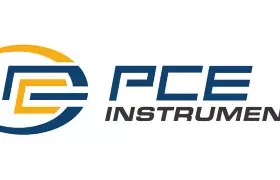
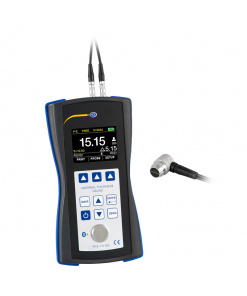
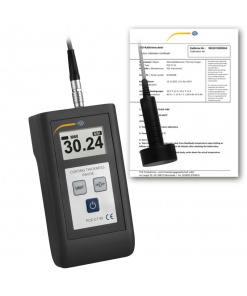

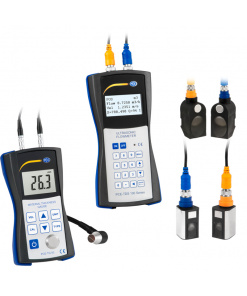
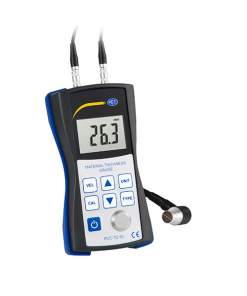
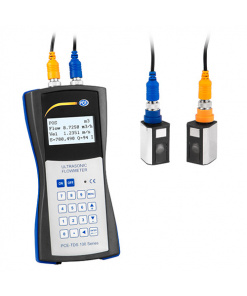
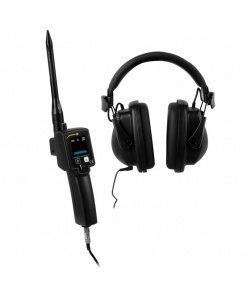
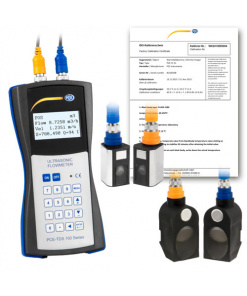
รีวิว
ยังไม่มีบทวิจารณ์